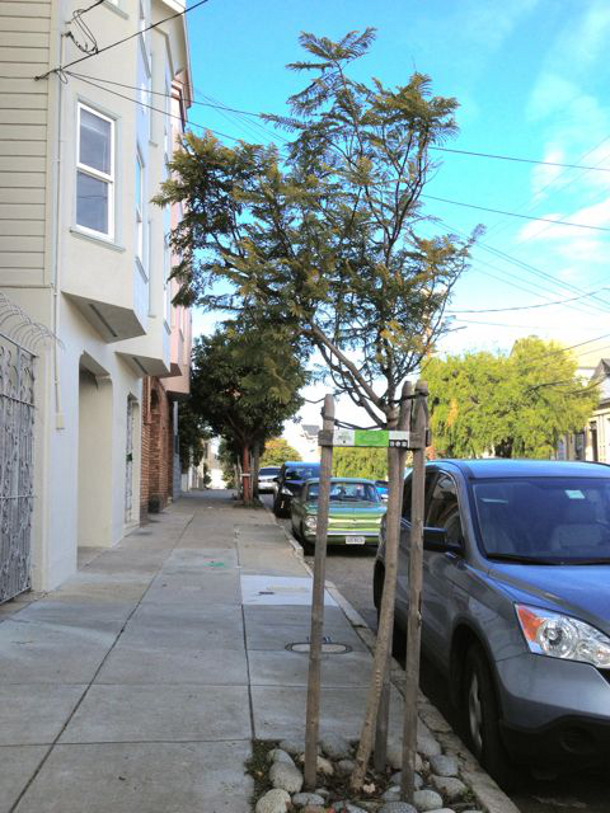
For a newly planted street tree, adequate watering during establishment is literally a matter of life and death. The establishment period and amount of water can vary depending on climate, soil type and tree species. A street tree in San Francisco planted from a #15 nursery container usually requires 15 to 20 gallons per week for the first 2 to 3 years after planting. Water must be applied slowly to prevent runoff and adequately penetrate the soil. Slowwatering takes time takes time. Without irrigation, what’s the best method to water a sidewalk tree? Let’s compare:
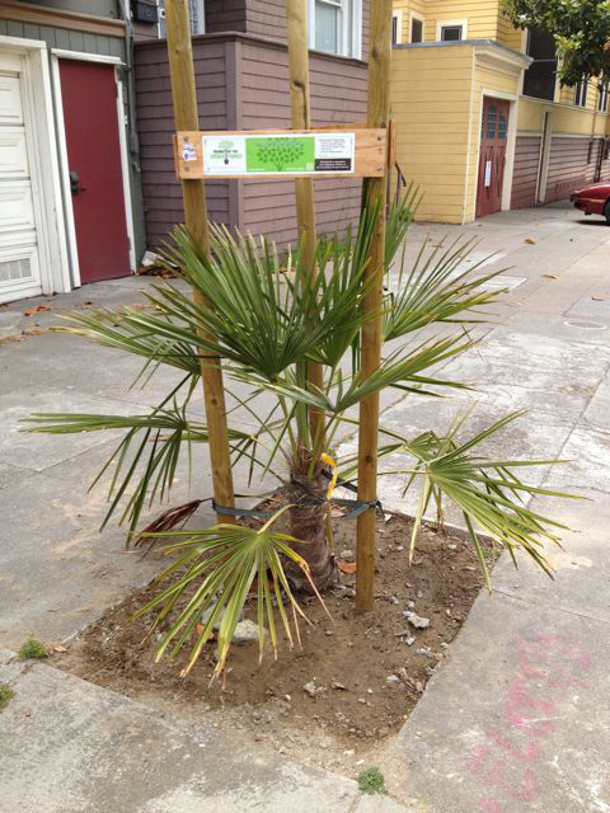
Brown tips and pinched look of the leaves indicate drought stress for this palm, even though the soil has been recently watered
Method 1: Rain. In many parts of the country, rainfall is not adequate or consistent enough. One inch of rain in a 3 foot by 3-foot tree well delivers about 5 gallons to the tree. Unless you live in a rainy area, you’ll need to supplement.
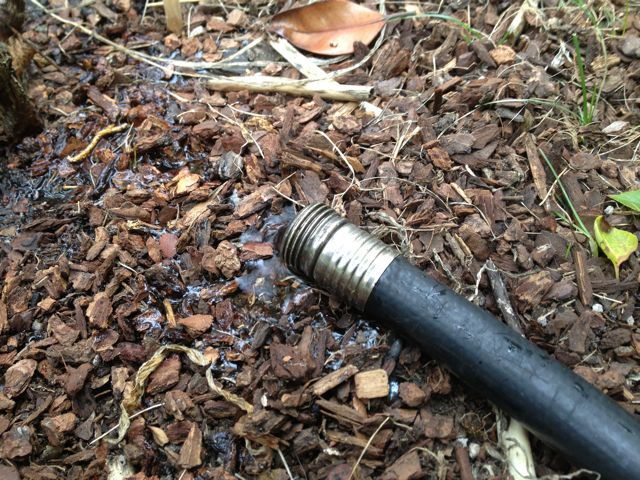
Method 2: Hose. The hose must be on a trickle to be effective. That means stretching it out across the sidewalk for a while. How long? Time how long it takes to fill a gallon on a trickle and multiply that by 15 to 20. Probably, 30 minutes to an hour. During that time, you create a tripping hazard and risk wasting water if the hose is kicked. And what if you have more than one tree? More work and more hazard.
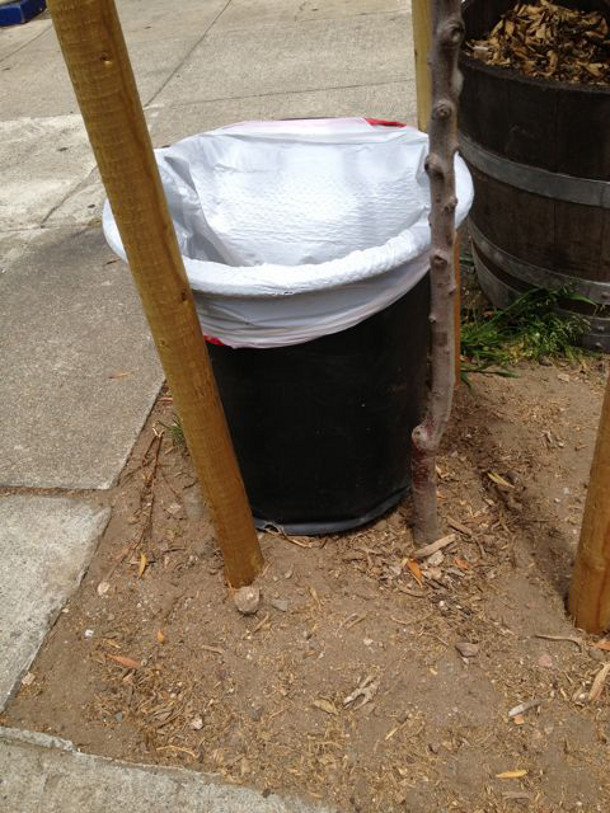
Method 3: Bucket with small hole. This is more effective because the small hole delivers water slowly and you spend less time watering. Any vessel of known volume will do. If the tree came in a #15 (“15-gallon”) container, you can repurpose it by lining it with a trash bag and poking a small hole in the bag. It holds about 6 gallons (not 15!) so you’ll need to fill up the bucket 3 times each week. Buckets may be stolen or mistaken for trash cans. Zip tie the bucket to the tree stake and put chicken wire over the top to prevent these problems.
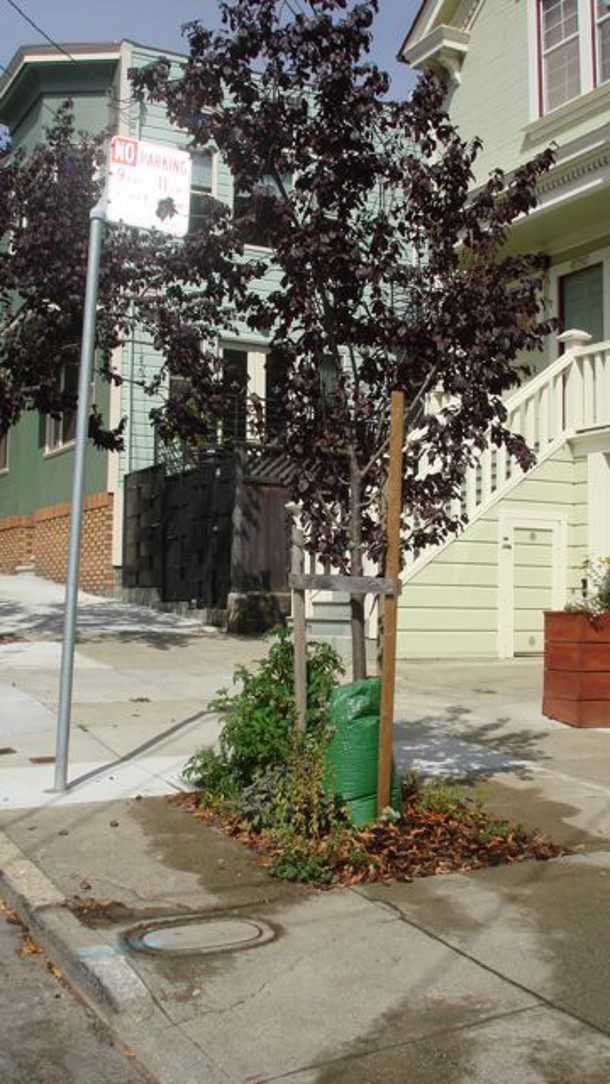
Method 4: Watering bag. The cone-shaped bag has a capacity of about 20 gallons and zips around the trunk. Multiple bags can be zipped together for larger trees. You spend mere minutes per week filling up the bag and water seeps slowly out of the pores over a couple of hours. Bags are reusable and inexpensive. They are less prone to theft because they only have one purpose, while a bucket is multi-functional.
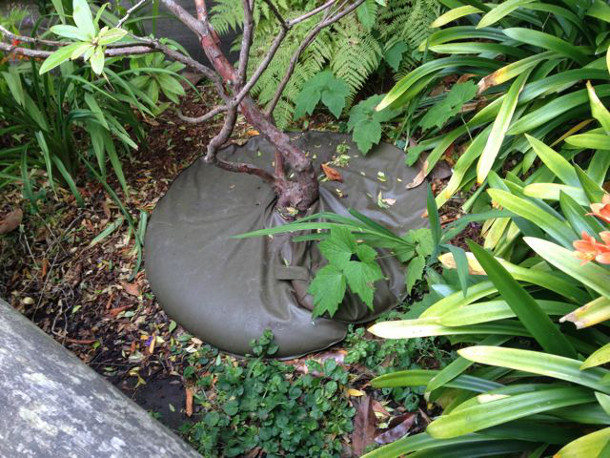
For shrubs or low branching trees, a flat, donut-shaped bag is available. This style only emits water through 2 emitters in the bottom and is also more likely to spill water out the filling hole on uneven ground. Use it only if the cone shape won’t work.
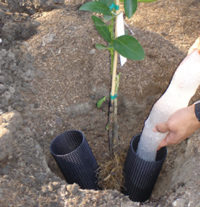
photo courtesy of driwater.com
Method 5: DriWater. Not to be confused with water-holding polymers, DriWater is actual water bound into a gel with food-grade ingredients. Water soil thoroughly , then insert one or more DriWater “sausages” (gel pacs) into a tube next to the rootball. The product will slowly release water over a period of 30 to 90 days. This is great for trees in areas that are hard to access. You will still need to water the soil every time you apply DriWater for best effectiveness, and budget for enough gel pacs for the establishment period.
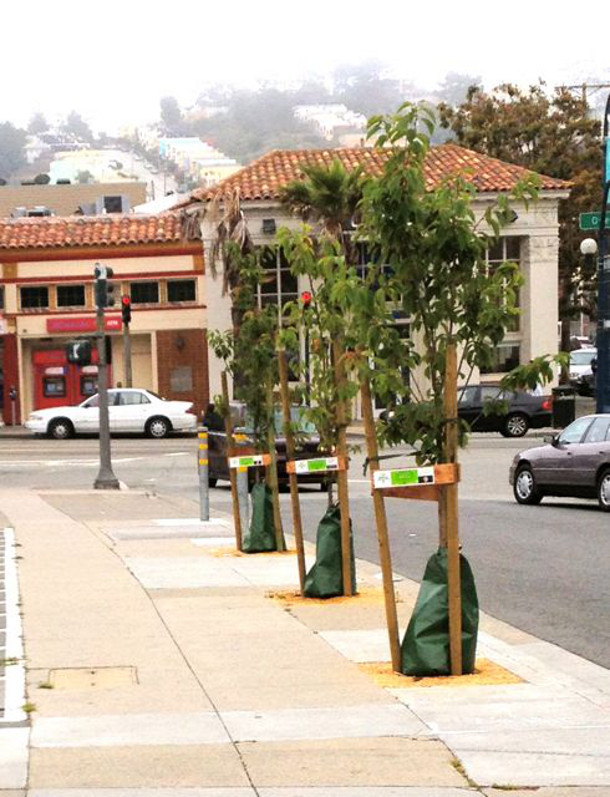
Conclusions: The watering bag is the best value in terms of cost, effectiveness, and efficiency, with the bucket method in second place. DriWater is a great product for hard to reach areas or when no watering personnel are available, but you do have to have some water available and budget for the cost of replacement gel pacs. The hose alone is least effective and most problematic in a public sidewalk situation.
Ellyn Shea is a consultant and garden educator in San Francisco.

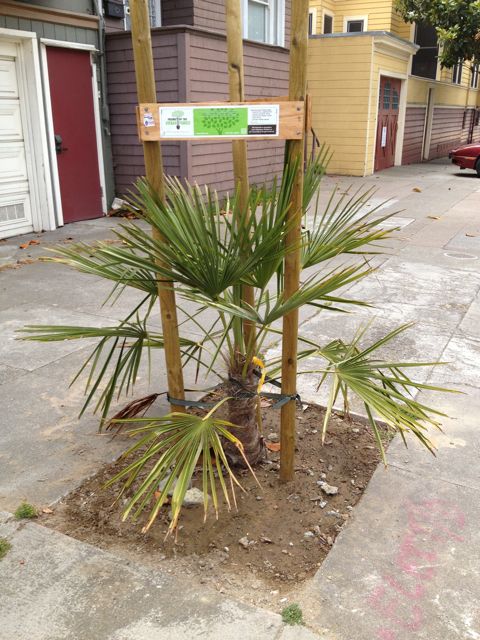
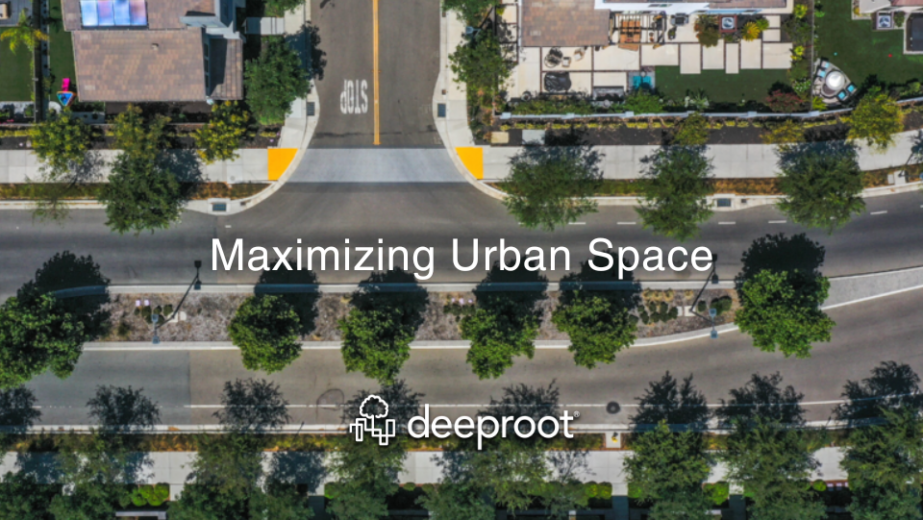

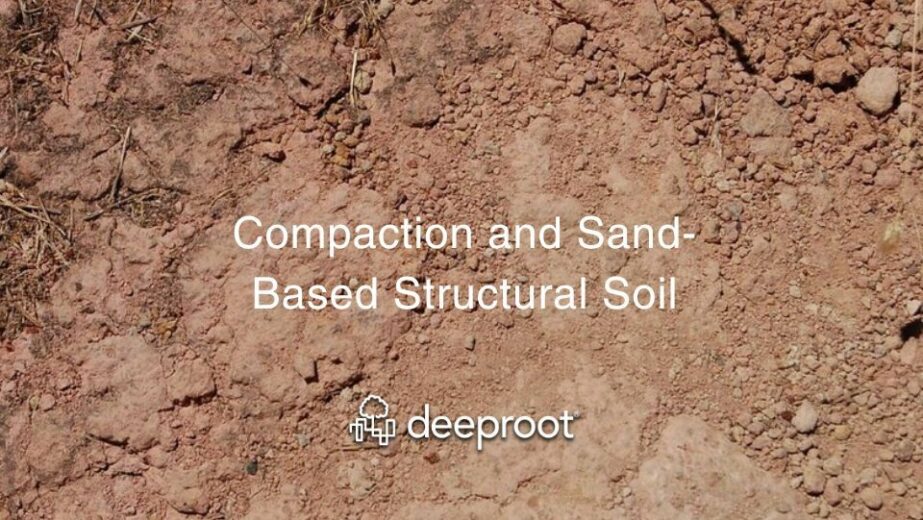

Really great work…watering bag take first place for cost, efficiency and effectiveness after than bucket method, Driwater and hose.